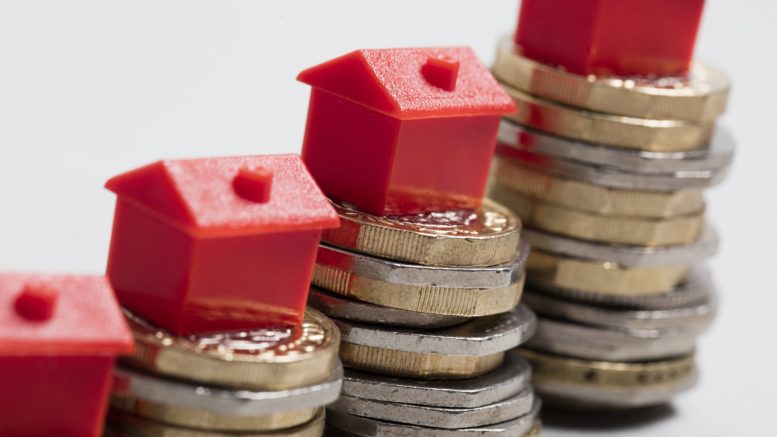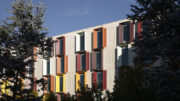What does “property yield” mean?
A property yield refers to the annual return likely to made on a property investment. A rental yield is calculated by taking the annual rental income and dividing it by the property value, and then multiplying by 100. This will give a gross yield percentage. To get a net yield percentage, factor in fees such as ground rent or a service charge.
What is a good rental yield on a property investment?
Typically, buy-to-let investments offer lower rental yields compared to commercial properties. This is due to many factors including the property price and tenancy type. There is a possibility to regularly review rental prices with property tailored towards short-term tenants, and property rented as serviced accommodation is typically more expensive than a regular residential property. For investors who are looking to invest in buy-to-let property, a yield of around 5-8% is considered good.
Low interest environment allows landlords to take out mortgages and still achieve high rental yields
In July, gross mortgage lending in Britain was up 9% year-on-year according to UK Finance. The number of approvals has also increased from 75,105 in June to 77,786 in July. Mortgage interest rates have also been slashed to entice the smaller buy-to-let market, with the Post Office being the latest lender to introduce a two-year fixed rate of 1.33pc, its lowest ever according to mortgage comparison site, Moneyfacts. These low interest rates allow investors to achieve a good yield on property investment as the cost of repaying the mortgage is lower and this is offset by rental income.
Older investors may already own their own home outright. According to Census data from 2011, three quarters of those aged 65 and over own their own home, 72% of which are either three bedrooms or more. Some of these owner-occupiers may be looking for retirement income to supplement their pension and ensure a more comfortable life and may be eager to downsize to a more manageable property. With the additional equity that can be released individuals may consider investing in more property. Bearing that option in mind, what are some high yield investment options?
Retirement property investments – high yielding fully managed investments
Care home investments and later living retirement villages offer high yearly returns of more than 8%, for a guaranteed number of years. These are ideal for overseas investors who cannot afford the time to perform general maintenance tasks associated with more traditional buy to let properties as they are operated by a management company. The process involves the investor buying a room in an operating care home, and then leasing it back to the management company for a monthly return.
Residential care homes can generally achieve slightly higher yields if they accommodate self-funded residents. Sought-after care homes that provide assisted living services such as personal shopping, preparing meals and offering beauty treatments and entertainment are often luxurious, and individuals choose to stay there do so for the social experiences and community feel, not because they require nursing care.
How good are UK student property investments?
It is understandable that with Brexit and the fall in the number of EU students applying for places at UK universities, investors perhaps have disregarded student property investments. Investing in student property can still generate a good rental yield if a prudent approach is taken and a city is chosen where there is still a significant student population.
Some cities have high percentages of EU students, and the appeal of prestigious universities such as Oxford or Cambridge will not wane, regardless of whether students must pay higher tuition fees. Likely, this would be at the expense of other universities that are popular with EU students, such as Coventry (8.1% EU students) and Bath, (7.2% EU students) according to a recent report by KPMG.
Investors can instead choose universities with a lower percentage of EU students, such as Sheffield (2.9% EU students). These universities will be less impacted by the fall in EU application numbers, and therefore accommodation in the city will not experience gaps in occupation due to a shortage of students.
Residential property: a good investment option?
As mentioned previously, banks offer disappointing interest rates that makes it harder to earn money from savings. Blue chip defensive stocks also offer meagre returns, and some other investment options that offer higher returns carry with them a significant amount of risk such as Land Banking.
If the right area and development is chosen, investing in residential property can generate good returns. For example, Newcastle is undergoing a sort of digital renaissance. Recognising the strength of the digital sector, the North of Tyne recently launched its £10m Digital Growth and Innovation Programme to support existing digital businesses in terms of safeguarding jobs and providing training to new employees.
There are also plans for a £9m Centre for Digital Citizens (CDC) led by Newcastle University and Northumbria University. The centre would work with citizens to evaluate “data-rich” living in urban, rural, and coastal areas in the North East of England and beyond. Approximately 30,000 people are employed in Newcastle’s digital sector, and London was the only region to have a faster rate of job growth.
Job creation is one thing to keep in mind when choosing an area for property investment. As more employees move to the area for opportunities, they are going to need somewhere to stay.
Property investment in the UK has always been a popular option, due to the stability in the market. Despite additional rules and regulations being introduced (such as additional stamp duty charges), it remains a profitable market to invest in.
Investors who have concerns with how stamp duty can affect the profitability of a residential property can consider commercial investments such as student property and retirement home investments. These properties are exempt from stamp duty if the price does not exceed £150,000, making them a great option for people wanting to achieve strong rental yields because their purchase costs are lower.







